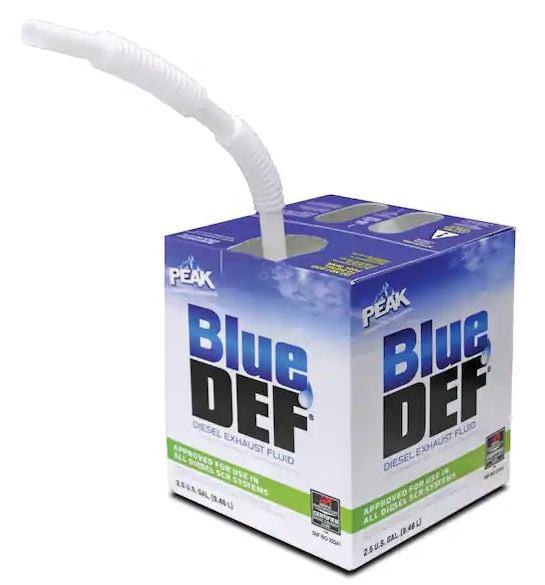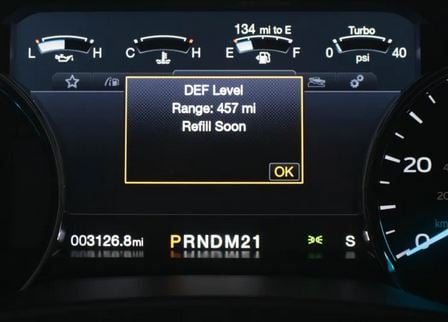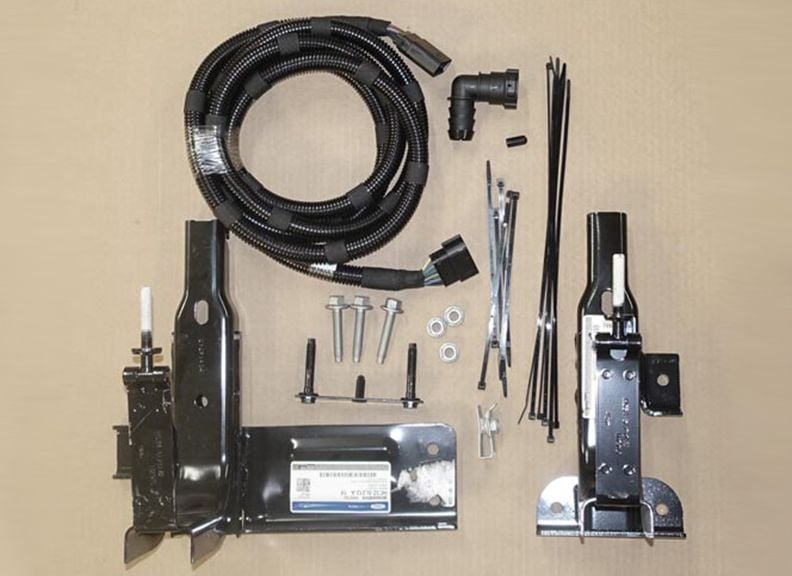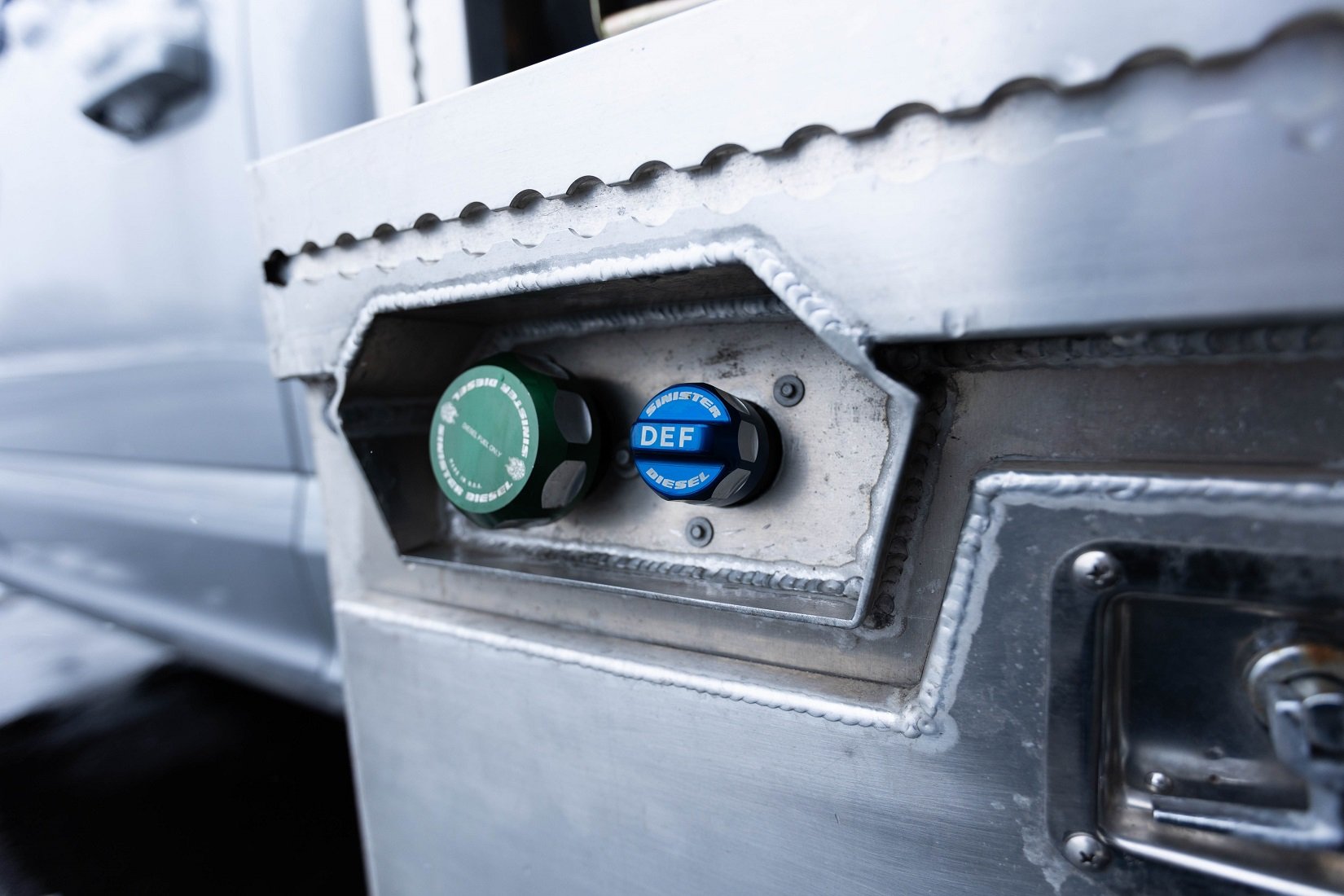If you own a modern diesel truck, you’ve likely had to purchase and refill diesel exhaust fluid (DEF) regularly—but what exactly is it, and which is the best DEF fluid for your vehicle? DEF is essential for reducing emissions in trucks made after 2010, and choosing a high-quality DEF product can help maintain efficiency and prevent contamination issues. With so many brands available, understanding what DEF does, how it works, and how to store it properly is key to keeping your diesel running smoothly.
Diesel engines have been around for well over 100 years, but in the last decade, there have been significant advancements and improvements with their emissions systems. In order to keep soot and other harmful contaminants out of the air we breathe, several different systems are installed onto modern diesel engines, and one of the most important relies on a liquid called diesel exhaust fluid. If you drive a diesel pickup that was made in 2011 or newer, you are well aware that every so often you have to go to the store and buy a box of diesel exhaust fluid and pour it into the truck, but what exactly does it do? Why do you need to keep adding diesel exhaust fluid to your truck? What would happen if you run your truck out of diesel exhaust fluid? All this and more will be covered today as we discuss everything you need to know about diesel exhaust fluid.
What is Diesel Exhaust Fluid?

Diesel exhaust fluid is a clear liquid you can buy at gas stations, supermarkets, auto parts stores, or even big box home improvement stores, and it usually comes in 1-gallon jugs or 2.5-gallon cardboard boxes with a plastic liner inside. Depending on where you buy it, diesel exhaust fluid usually costs around $15 for a 2.5-gallon box (around $6 per gallon), but if you buy it at the truck stop dispenser, it can be a little cheaper. It’s called DEF for short, but the very first thing you may be wondering is what on earth is diesel exhaust fluid, and the answer is quite simple: it’s a fluid that gets injected into the exhaust system of your truck to help reduce pollution. We’ll cover exactly how it works in a minute, but if you are wondering what diesel exhaust fluid is made from, once again the answer is simple: it’s mostly water. In fact, 67% of diesel exhaust fluid is deionized water, and the rest is made up from something called urea.
If you paid attention in your high school science class, you’ll likely remember Urea is a natural byproduct of the metabolic process that takes place within a cell, and its abundantly found in nature in urine from mammals. Yup, you read that right, urea is found in pee. While your first reaction might be that of shock, don’t worry, DEF is not actually made from urine collected on the farm, but rather its synthetically derived in a laboratory somewhere, although from a chemical standpoint, it’s pretty much the same thing.
What Does Diesel Exhaust Fluid Do?
Diesel exhaust fluid plays an important role in the emissions system on your diesel engine, but to better understand exactly what it does and why we need it, we need to provide a little context.
When diesel fuel is burned inside your engine it creates heat and horsepower. The horsepower is used to move the vehicle along, and the heat is dealt with through the radiator, but there are also several other unwanted byproducts that are a result of the combustion process. Because diesel fuel is a hydrocarbon, when it’s burned there are two major pollutants that come out of the tail pipe of the truck, which are nitrogen oxides (NOx) and particulate matter (PM) which is basically soot or black smoke. In the olden days, a diesel engine would simply release these nasty byproducts into the atmosphere, but in order to help keep the planet healthy, both byproducts need to be safely dealt with. Starting in 2008, all road going diesel engines were fitted with a diesel particulate filter (DPF) that was responsible for trapping the soot that would normally leave the tail pipe, but to properly deal with the invisible nitrogen oxides, a new system was introduced to most diesel pickups in 2010 that was called Selective Catalyst Reduction, or SCR.
Engineers discovered that with the right chemical reaction, you could break down the dangerous NOx compound into its two much less harmful base components of nitrogen and oxygen. The chemistry is a bit complicated, but the short and sweet version is that when you inject urea into the exhaust stream in the presence of enough heat, the urea first turns into ammonia, which in turn breaks down the nitrogen oxides into nitrogen and oxygen, and you are left with essentially harmless gasses exiting the tailpipe of a diesel truck. In order to make the SCR system work, there are several components installed on the truck. There is a tank that holds the DEF which usually will store around 5 gallons, a heater to prevent freezing in cold weather, a pump and lines that deliver the DEF into the exhaust system, and finally an injector nozzle that sprays the precise amount of DEF into the exhaust when it’s called for by the engine control module.
How Long Does Diesel Exhaust Fluid Last?
There are two ways you can answer the question of how long does diesel exhaust fluid last, and the most common interpretation of the question is how many miles of driving can you get from a full tank of DEF? Of course, the answer depends, because much like fuel mileage, your DEF mileage will vary depending on the load of the engine. Cummins published a study back in 2010 that stated your DEF mileage is directly proportional to your fuel consumption, but you only use about 1 to 3% as much DEF as you use diesel fuel. For example, if you have a truck that gets 20 MPG, you can travel approximately 1,000 miles per gallon of DEF used. Given that an average tank holds about 5 gallons, this means you only need to fill your DEF tank once every 5,000 miles. This of course is a best-case scenario because most trucks won’t average 20 MPG for 5,000 miles in a row, but in real world conditions, a full tank of DEF in a pickup truck can last 3,500 miles while driving empty, or 1,000 to 2,000 miles of towing. While the per gallon cost of diesel exhaust fluid is a little more expensive than diesel, because so little is consumed, your truck’s DEF consumption will only cost you a few pennies for each mile you drive, even if you’re towing.
If you buy DEF in bulk, because of how little it gets used, it may end up sitting around for a few months before you need to pour it into the truck, so the next question is how long can you store DEF, and can it go bad? Once again, the answer depends, but if you are not planning on pouring your diesel exhaust fluid into your truck right away, its best to store it in a cool dry place. If you keep DEF away from direct sunlight and store it at temperatures less than 75°F, it can last for up to two years. If the storage temperatures get a little warmer than 75°F, its shelf life will be cut down to about a full year before it goes bad.
What Happens When You Run Out of Diesel Exhaust Fluid?
Because diesel exhaust fluid is a consumable item just like diesel fuel, it is possible to run your truck out of DEF. Most trucks have a DEF level gauge on the instrument cluster that will tell the driver how much exhaust fluid is left in the tank, or if no gauge is installed there will be at the very least a warning light that will come on if the tank is running low.

Let’s say for conversation’s sake you ignore the warnings and try to continue driving your truck once all the DEF has been used and the tank is empty, what would happen? You might think it’s not a big deal and you could continue along your way without a worry in the world, but your truck’s electronic control system is designed to not let you drive without any DEF. If you try and push past the warning signs, the maximum speed of your truck will be slowly reduced, usually starting at around 50 MPH at first, but as you continue to drive without DEF, your top speed can be lowered to just a few miles per hour. Of course, there will be plenty of warnings ahead of time, but once your truck is out of DEF, you’re not going anywhere except to the side of the road, so make sure you keep an extra jug of DEF on hand if you’re going on a road trip.
Choosing the Best Diesel Exhaust Fluid (DEF)
When it comes time to buy some DEF for your diesel truck, you will be faced with a few different brands and options. While in theory all diesel exhaust fluid should be the same, there are some differences in quality, and if your truck gets a bad batch of DEF, it can cause problems. There are sensors inside your DEF tank and lines that will look for contamination, excess water, or even dirt, and if they detect a problem, you truck may enter a speed limited mode just like if you are out of DEF.
Best DEF Fluid Brands
An inexpensive insurance policy against contamination is buying a quality DEF. The most popular brand of DEF is Peak Blue DEF (which I’ve used exclusively for 75,000 miles on my L5P with great results), but you can also purchase diesel exhaust fluid from your dealership parts department if you want to stick with an OEM recommendation. Basically, just stick with a brand name DEF and you shouldn’t have any issues.
DEF Tanks, Pumps, and Other Product Recommendations
While for the most part, your DEF system should be maintenance free for at least 100,000 miles, occasionally a part of the system can fail and will need to be replaced. Just like most other parts on your vehicle, replacements are available from aftermarket brands as well as OEM manufacturers, so whether you need a genuine Bosch DEF injector for an LML Duramax or a Dorman Diesel Exhaust Fluid Heater assembly for a 2011-2016 Powerstroke, Diesel Power Products has what you need to keep your SCR system up and running properly.
DEF Tank Relocation for Longer Range

Sometimes components in the diesel exhaust fluid system on your truck may get in the way of other modifications, and one such example is for the 2017 to 2022 Ford Powerstroke cab and chassis trucks. Many owners use their rig for long distance hauling and a larger fuel tank is a necessity, but on the Ford cab and chassis, the DEF tank is too close to the fuel tank to allow for an oversized tank to be installed. Titan Fuel Tanks has a great solution that will allow you to relocate your DEF tank from the inside of the frame rails to the outside, which opens up enough space to install a Titan 40- or 54-gallon tank on your Powerstroke which will greatly extend your range.
All the Diesel Parts You Need at DPP
Whether you need to make repairs to your Diesel Exhaust Fluid and SCR system, or you need any performance parts for your late model diesel truck, the one place you need to check out is Diesel Power Products. They have an immense selection of repair and performance parts in stock and ready to ship to your front door, but the best part is they are staffed with industry leading experts who can help you pick exactly the right part for your diesel truck to get it back on the road or customize it to meet your needs, so if you have any questions, just give ‘em a call!


So if I am low on DEF I can just piss in a bottle of distilled water at a ratio of 67 to 33% and I’m good to go?
AdBlue, DEF, AUS32 from China at a very good FOB price:
Flexi tank bulk: $365/ton
10L: $4.5/bottle
20L: $9.4/bottle
1000L: $425/IBC
WhatsApp: +8613714455119
Website: http://AdBlue.cn
Was a very interesting and learning experience for me thanks
12/22/2023 Filled up my DEF tank at Buc-ee’s at the pump. $3.299 per gal. Robertsdale AL.
I had a container of DEF break in my new truck interior. I have cleaned 4 times and when the temperature heats up in the cab. The ammonia smell comes back. What can I clean my carpet with to neutralize the smell?
Question I have is DEF Platinum a worth while investment… Does this product add a benefit
why is it so hard to find the code, for 2024 blue def expiration numbers on the box!!!!!!
put a date code on def that the average person can understand
Was this article sponsored by DEF Blue manufactures? What happens with Wal mart’s brand?
I just went out to my shed where 2013 ford is and I happened to see the def jug and it was frozen solid so now I have a frozen tank of def in my truck I have to ask what good is this shit when it freezes in the winter, Minnesota sees -20 degree temps so now I got to put it in a warm garage to thaw it out. I have to wonder how many people know this that deck freezes at 12 degrees.